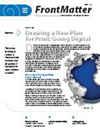Transforming Degraded Rangelands and Pastoralists' Livelihoods in Eastern Bhutan
IF 1.8
4区 环境科学与生态学
Q4 ENVIRONMENTAL SCIENCES
引用次数: 1
Abstract
High-elevation rangelands in Bhutan provide livelihoods for many herding communities. However, severe rangeland degradation in the far eastern region is threatening livestock productivity, biodiversity conservation, and household wellbeing. This paper describes a 3-year community-based rangeland project in eastern Bhutan aimed at restoring and protecting high-elevation rangelands, including wildlife habitats, grasslands, and watersheds, while improving livelihoods. Herder families (120) of the Brokpa ethnic group participated in group management training, savings schemes, pasture improvement, revegetation, and conservation education. Herders restored 35 ha of severely eroded rangeland and sowed 80 ha of improved pasture, and 148 household members invested in savings, with 10 households borrowing funds to diversify income. Households were interviewed before and after the project using semistructured interview guides to determine their perceptions of the project's impacts and limitations. Respondents were satisfied that gully erosion was under control, savings groups were generating income, community cohesion had improved, and awareness of red panda conservation had increased. However, there was ongoing winter fodder shortage, heavy rain damage, and lack of consensus about improving communal pasture areas. We conclude that pastoralists' willingness and ability to restore mountain rangelands will depend on the security of their use rights to graze and manage high-elevation areas. Building trust between mountain communities and agencies and staying committed to long-term social and environmental change are essential for practitioners and policymakers.不丹东部退化牧场和牧民生计的转型
不丹的高海拔牧场为许多牧民提供了生计。然而,远东地区严重的牧场退化正威胁着畜牧业生产力、生物多样性保护和家庭福祉。本文介绍了不丹东部一个为期三年的以社区为基础的牧场项目,该项目旨在恢复和保护高海拔牧场,包括野生动物栖息地、草原和流域,同时改善生计。Brokpa族牧民家庭(120户)参加了群体管理培训、储蓄计划、牧场改良、植被恢复和保护教育。牧民修复了35公顷严重侵蚀的牧场,种植了80公顷改良草场,148名家庭成员进行了储蓄投资,10户家庭通过借贷实现收入多元化。在项目之前和之后,使用半结构化访谈指南对家庭进行了访谈,以确定他们对项目影响和局限性的看法。受访者满意地认为,沟蚀得到了控制,储蓄团体产生了收入,社区凝聚力得到了改善,保护小熊猫的意识得到了提高。然而,冬季饲料短缺、暴雨破坏持续存在,并且在改善公共牧场面积方面缺乏共识。我们的结论是,牧民恢复山地牧场的意愿和能力将取决于他们对高海拔地区放牧和管理的使用权的保障。在山区社区和机构之间建立信任,并致力于长期的社会和环境变化,对实践者和决策者来说至关重要。
本文章由计算机程序翻译,如有差异,请以英文原文为准。
求助全文
约1分钟内获得全文
求助全文
来源期刊
CiteScore
3.10
自引率
18.80%
发文量
36
审稿时长
4.5 months
期刊介绍:
MRD features three peer-reviewed sections: MountainDevelopment, which contains “Transformation Knowledge,” MountainResearch, which contains “Systems Knowledge,” and MountainAgenda, which contains “Target Knowledge.” In addition, the MountainPlatform section offers International Mountain Society members an opportunity to convey information about their mountain initiatives and priorities; and the MountainMedia section presents reviews of recent publications on mountains and mountain development.
Key research and development fields:
-Society and culture-
Policy, politics, and institutions-
Economy-
Bio- and geophysical environment-
Ecosystems and cycles-
Environmental risks-
Resource and land use-
Energy, infrastructure, and services-
Methods and theories-
Regions

 求助内容:
求助内容: 应助结果提醒方式:
应助结果提醒方式:


